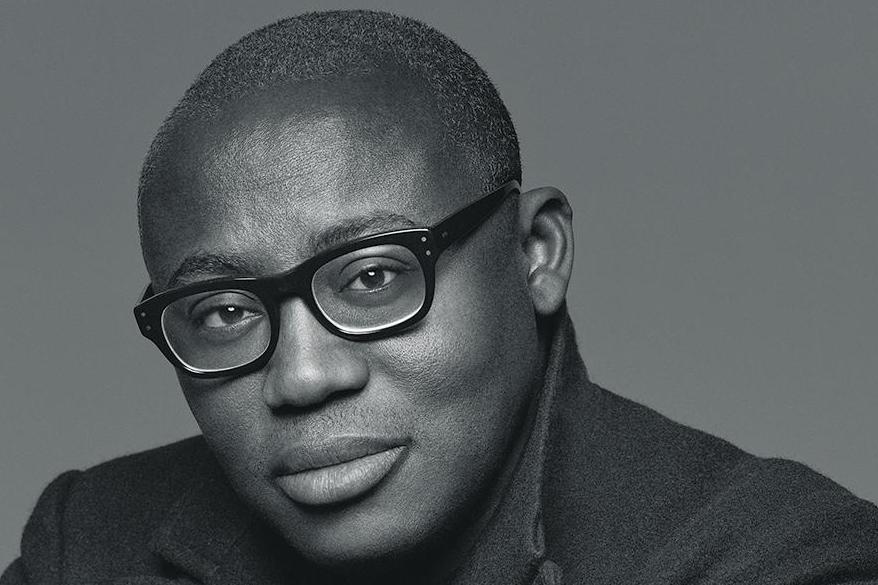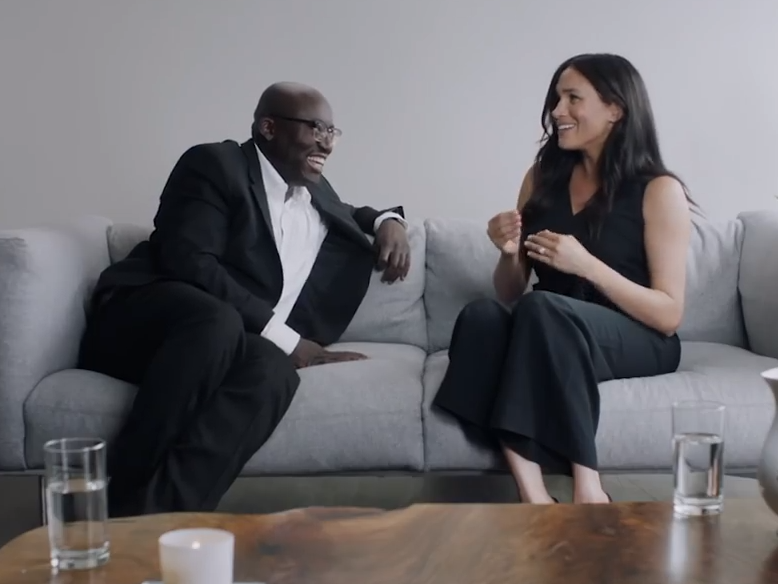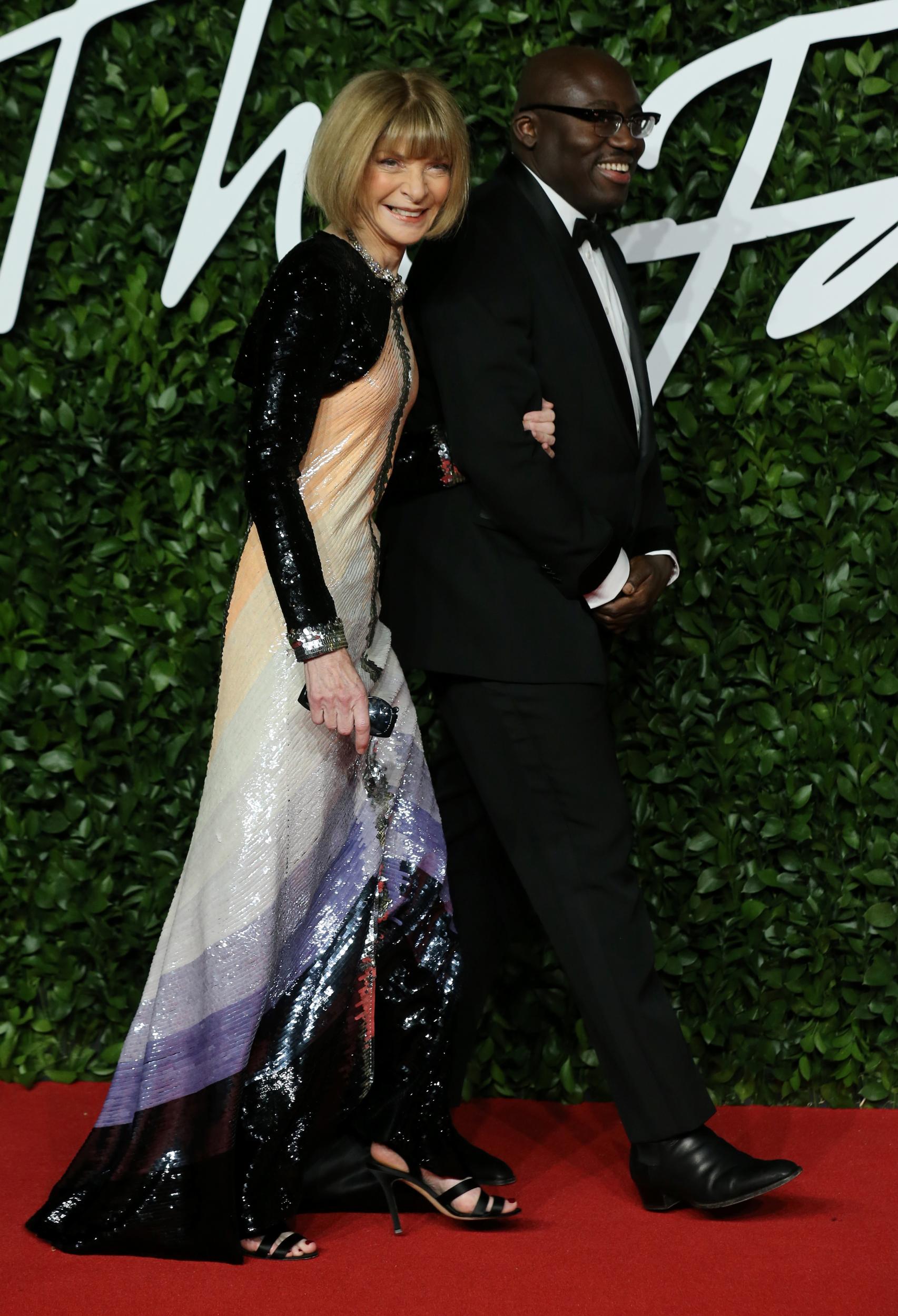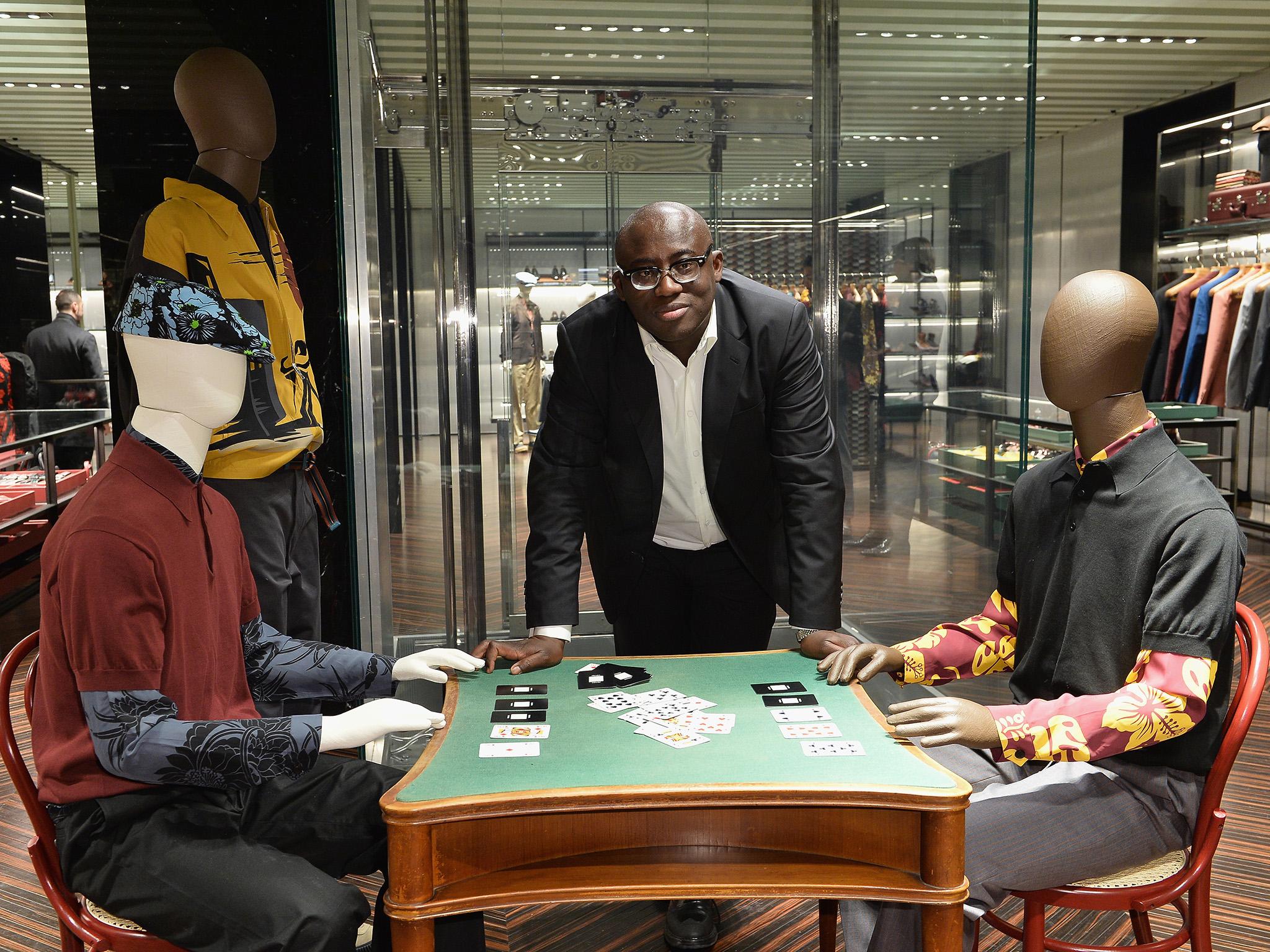Edward Enninful: The fearless editor who became one of fashion’s most influential voices
Sean O’Grady looks at the trailblazing career of the ‘British Vogue’ editor – born in Ghana and raised in west London – who has set himself a mission to promote diversity, equality and respect


There is a school of thought, well represented in high government circles, that rejects the notion of “systemic racism” in British society. Instead, the argument runs, racism is very much a thing of the past. If you apply yourself, go out and take the opportunities available you can do well, even if you’re not from a traditionally privileged background. You can get to be home secretary or chancellor of the exchequer.
Or, indeed, editor-in-chief of British Vogue, as Edward Enninful, appointed in 2017, born in Ghana in 1972, and who emigrated to Britain in 1985, well demonstrates. (The family got out when they found themselves on the wrong side of one of Ghana’s frequent coups d’etat – political refugees, asylum seekers, as it happens). Yet while Enninful fits the ideal set by the likes of Munira Mirza and Priti Patel, he’s in no doubt about the endemic racism that wrecks the lives of others – and still touches his.
There are few areas of British life that was more “white” than fashion publishing – yet Enninful is both a symbol of shifting attitudes and is himself something of an engine of change. An energetic, determined editor who, like his illustrious counterpart in America, Anna Wintour, he knows what he wants. He has set himself a mission to promote diversity, equality and respect.
It was doubly ironic and painful, then, that as he arrived at his office at Vogue House one morning last month he should find himself being told by a security guard to enter via the loading bay, as if he were another bag of frocks to be photographed. Grand as Edward Enninful OBE might be, he could find himself on the end of a racial slur and the victim of a stereotype, and in his own home so to speak. The guard was fired and Enninful’s Tweet went viral:
He added, for the benefit of his 1 million Instagram followers: “It just goes to show that sometimes it doesn’t matter what you’ve achieved in the course of your life: the first thing that some people will judge you on is the colour of your skin.”

Of course the Downing Street view would be that he’s still the Vogue editor and that’s what counts, which is to miss the point. As Enninful indicates it is a tiny example of the mindset, conscious or otherwise, that holds so many people of colour back so unfairly. Despite the attention, the furore isn’t actually “all about him”. It simply gives the lie to a lazy, complacent view that trying to talk about race and demonstrate about injustice is unnecessary in a world of “equal” opportunity. In an interview with Gillian Joseph on Sky News Enninful reflected that “it was an isolated incident, of course, but it takes you back to all those moments in your life when this has happened”. Those moments, he told Joseph, would include when he was a boy growing up in the Notting Hill of the 1980s, then a rundown district known for its racial tension rather than chichi boutiques. It was home to immigrants and it witnessed racially motivated attacks and race riots in 1958. He recalls that “you had to be careful with the police” and which streets to walk down. His attitude though was “never sit back and give up”.
I don’t let racism question my confidence. I don’t shy away from it. But I always let my work speak for itself
He was also very conscious of his Ghanaian background. His mother, Grace, was a seamstress, and seeing her run up vibrantly patterned clothes may have helped spark an early interest, if nothing more, in fashion. There were six children in the family of Grace and “CK” Enninful, who’d served as a major in the Ghanaian army (and made some political enemies).
Life must have been sometimes difficult as immigrants in such different times, but it was Edward who was in due course chucked out of his home by his father, when CK learned his son was gay. It took some years for them to be reconciled, but they were together when Edward picked up his OBE from Buckingham Palace in 2006. He said he took the award, rejected by some for its imperial vibes, for his dad’s sake. His friend Naomi Campbell also went along.

Enninful says has always felt “different” as a black and gay man – “when you’re gay you’re always viewed as the ‘other’”. To this day he “wants young kids to know it’s OK to be who you are.” At Vogue he has stepped up the attempt to diversify recruitment, go into schools and generally change the conception (or reality) that Vogue was run by and for posh white women, a magazine that, like others of its type, rarely featured black faces on its cover.
Anna Wintour and his predecessor Alexandra Shulman were the daughters of well established Fleet Street journalists, well connected and admired for their work and professionalism, but undeniably from a more privileged background. Before 2017, British Vogue went 14 years with only six non-white solo cover stars; after then it featured 16 out of 28 non-white women, and its first (publicly) transgender cover star. Dame Judi Dench and Oprah Winfrey have found themselves featured, and key workers on “the new front line”. He put a woman in a hijab on the cover, Halima Aden, as well as Rihanna in a durag – more firsts.
Vogue is widening its appeal, grabbing attention and doing something to shore up sagging print sales. He’s been good for business. Whatever else, it justified the decision of publishers Conde Nast and then CEO Jonathan Newhouse to give Enninful the job “by virtue of his talent and experience supremely prepared to assume the responsibility of British Vogue”. He has, as hoped, shape the “cultural zeitgeist” as Newhouse termed it, though also reacting to some dramatic and unexpected events after the killing of George Floyd. Shulman, not naming names, complained in a column after her 25-year stint at British Vogue was over that there was a new guard of editors not so much magazine journalists but rather “celebrities or fashion personalities with substantial social media followings”. She added that editing magazines was “certainly not a job for someone who doesn’t wish to put in the hours and thinks that the main part of their job is being photographed in a series of designer clothes with a roster of famous friends”.
Well, Enninful did change things, and has grown more controversial with it. Vogue’s 2016 centenary edition, pre-Enninful, had a jolly Kate Middleton on the cover in full Cotswolds country gear – the style of the modern day Notting Hill set weekenders – plus a photo of “the team”, all white. Now, in the era of Covid-19 and Black Lives Matter, there is stark monochrome photography of Marcus Rashford and Adwoa Aboah looking reproachful. The Duchess of Cambridge adorning the cover has given way to the Duchess of Sussex guest editing the edition, and giving the cover to 15 “forces of change”, activists, artists, prime ministers (not Johnson) and climate change campaigners who are “breaking barriers and setting the agenda across the globe”. The Vogue team this time had more people of colour involved. The effort – a sold-out issue – took seven months and started with a text to Enninful from “M” suggesting the idea. It must have been a source of some satisfaction to them that their enterprise stayed a secret from her critics in the press for so long. (Enninful has, by the way, given sometimes different judgements on Meghan’s press treatment, and how much of it is down to racism.)
The job at Vogue like his OBE was a recognition for “services to fashion”, and, informally, for services to trying to make us a slightly more inclusive society a little life at ease with its multicultural realities, something he has done from the outset.
He hit his first break with some good fortune, being spotted on the Tube and asked by a talent scout if he’d like to do some modelling. An entree into fashion world at just 16 – the rest, as they say, is diversity.
The scout, fashion stylist Simon Foxton, talked about his discovery later to the Evening Standard: “He was a very good looking young man. The story has become quite apocryphal. I stopped him on the Tube as I was a scout for non-agency models. I asked him to model and he was interested but needed to ask his mum. She was more unsure. I don’t remember him having a burning ambition to get into fashion – I remember him wanting to go into law. He did a couple of shoots and saw what was possible”.

Also, it has to be said, what was not possible. Recalling those early assignments for this handsome young man he’s said: “It was my first experience of rejection because I looked a certain way: ‘We’re not looking for a black model this season, but thank you’ ... Sometimes you’d go to a casting and you could tell from the designer that you’re not meant to be there. At that age you don’t understand. It’s just devastating – coming from an environment where you are so welcome and loved, to being rejected”.
Living across from Hyde Park with his partner Alec Maxwell, a film director, and a Boston terrier named Ru, Enninful decided to join the Black Lives Matter he could see gathering. The self-made man sees no contradiction in turning activist. “I put my mask on and it was the most peaceful protest ... with people of all races, it struck me that George Floyd did not die in vain”.
Enninful never switches off, he says, and starts his days at 5.30am with a spot of meditation. He tries not to spend all night at the endless showbiz parties and get-togethers (easier during lockdown) and enjoys his Ghanaian dishes and struggles a little with his weight. Work seems to come first.
What Enninful has been doing at Vogue has long been prefigured. Since 18, when he moved from modelling to editing, as fashion director of I-D, working with industry legend Terry Jones, he has been trying to follow his philosophy that “beauty is beauty”, wherever it springs from. At Vogue Italia, for example, where he was a commissioning editor, he produced a “Black” edition in 2008 – its best selling edition ever. As fashion and style director of W magazine he pictured Kate Moss as a nun and put drag queen Carmen Carrera in the edition. When he found himself oddly placed in the second row at a New York fashion show he Tweeted about that immediately – “If all my (white) counterparts are seated in the front row, why should I be expected to take 2nd row? racist?”
Enninful, then, is not defined by his race or sexuality in the sense of being confined. He has taken his opportunities and become king of Vogue through his own efforts and in a spirit, as he’s put it looking back on his adolescence, “I’ll show you. I’ll break through”. But – crucially – he knows that not everyone can overcome obstacles in their way. His own life story doesn’t negate systemic, institutional racism: “I don’t let racism question my confidence. I don’t shy away from it. But I always let my work speak for itself.” You can’t deny him that.
Join our commenting forum
Join thought-provoking conversations, follow other Independent readers and see their replies
Comments